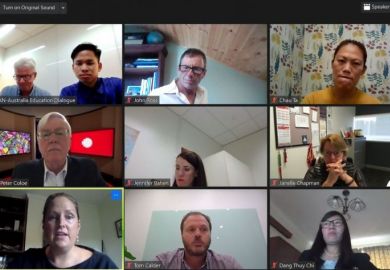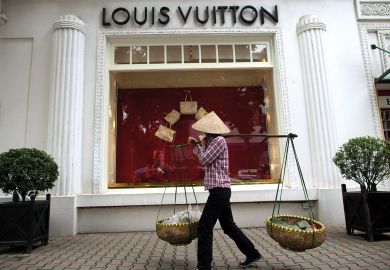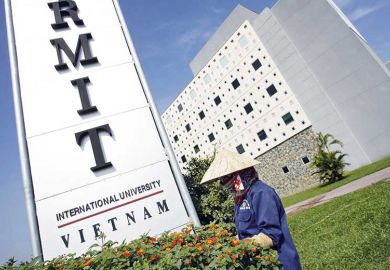Universities’ internationalisation activities are often depicted as highly competitive, with institutions scrambling to hoover up large numbers of international students or secure lucrative research partnerships.
But a Welsh university leader has highlighted how his country has benefited from taking a more collaborative approach to internationalisation, producing results that would not have been possible with a single institution-to-institution agreement.
Iwan Davies, vice-chancellor of Bangor University and chair of Global Wales, a partnership between Universities Wales, the British Council, the Higher Education Funding Council for Wales and the Cardiff government, cited the sector’s engagement with Vietnam over the past four years as a key example.
In an interview with Times Higher Education, Professor Davies said that the two countries were working together on common research interests, including topics relating to energy and cities, and sharing insights in areas such as initial teacher education programmes and the challenge of bilingual school systems.
He said that Vietnam was particularly appealing as a partner for Global Wales because it was “a vibrant country with increasing prosperity looking for international education and looking to reform its higher education system”. It was also a country where Welsh universities did not have any substantial prior engagement, with the potential exception of Cardiff Metropolitan University, which enabled the collaboration to become a “test bed” of what system-to-system engagement could mean, he added.
“It was a great opportunity to partner with Vietnam in terms of re-examining what does it mean to have a world-class higher education system. And that is just as much a question for Wales as it is for Vietnam,” he said.
“What [the partnership has] done is ensure that we are re-examining the Welsh higher education system within the context of seeing its strengths and weaknesses through this collaboration with Vietnam on how it sees its strengths and weaknesses of higher education. That’s informed policymakers; it’s also informed senior academicians in Welsh higher education.”
Professor Davies said that the “system-to-system engagement” between Wales and Vietnam had been very effective, providing “an opportunity for a two-way conversation in a way that one university could never ever have achieved”.
While many international partnerships were short term and reviewed on an annual basis, Professor Davies said there was “long-term investment” in the Wales-Vietnam collaboration. The higher education partnership had also resulted in new commercial and broader educational relationships between the two countries, he said.
However, Professor Davies suggested that the “system excellence” approach to internationalisation was not necessarily something that could be replicated by larger higher education systems.
“The university community in Wales is diverse but it also has coherence…there are economies of communication between vice-chancellors and Welsh institutions,” he said.
Register to continue
Why register?
- Registration is free and only takes a moment
- Once registered, you can read 3 articles a month
- Sign up for our newsletter
Subscribe
Or subscribe for unlimited access to:
- Unlimited access to news, views, insights & reviews
- Digital editions
- Digital access to THE’s university and college rankings analysis
Already registered or a current subscriber?








